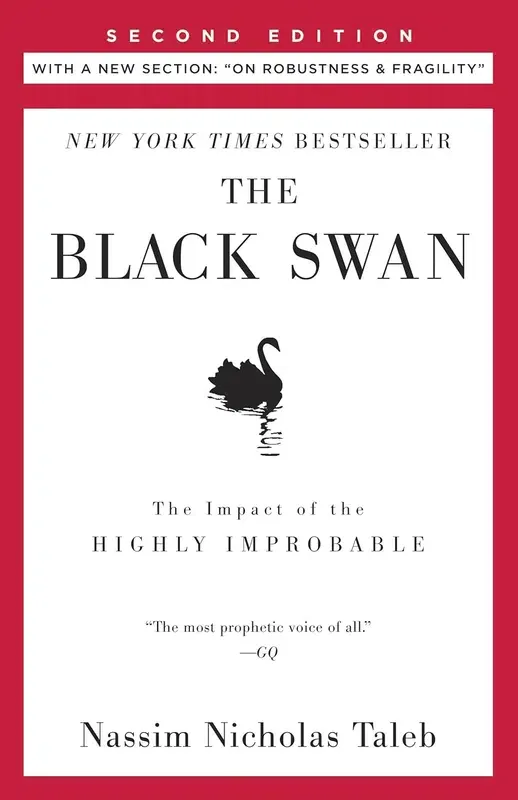Chris Aldrich reviewed The Black Swan by Nassim Nicholas Taleb
Review of 'The Black Swan' on 'Goodreads'
4 stars
I agree almost entirely with large portions of Taleb's work here, but I've got some broad problems with his presentation of the material. I'm sure I'll come back several times over the coming weeks to rewrite portions of this review as it won't come out quite right the first time, so please bear this in mind.
My biggest critique of the work is the poor writing style and layout of his overarching arguments. It could have stood to have a stronger editor (or any editor at all??), though my supposition is that his prior work's success has allowed him the unfortunate position to either eschew an editor or dismiss any advise dispensed by one. As a result, he writes a bit too cryptically and leaves out far too much for the audience he's trying to reach. Most won't have read as widely or as deeply as he has and he could stand to include a lot more background for the interested reader.
He has a very non-linear style of writing and is constantly referring either forward or backward within the work to other sections rather than laying out his present argument in the moment. This makes for spotty reading and comprehension for the majority of readers who are not prone to do all the back-and-forth required to get his full arguments. Similarly the layout of the footnotes and the endnotes doesn't do as much as they might for the lay reader and couldn't be said to be good even for the academic community.
Fortunately he provides a semblance of a glossary, but his definitions read like those of a 17th century dictionary rather than the clear and concise definitions he might have provided otherwise. This does little to help clarify his points.
Given the diversity of his background, he leaves something to be desired in his overall viewpoint and splits a happy middle ground between that of a philosopher and that of a mathematician. I'm interested to read a more mathematical driven version of his thinking, but nothing in his presentation here gives me much hope that his mathematical exposition will live up what a pure mathematician would expect from a text. Naturally, here in writing for a more broad public, he completely leaves out any real mathematics in favor for higher book sales. He's left then primarily with a more philosophic viewpoint which is reasonably established and laid out, but which still suffers from a lack of clarity even for someone well-versed in the field and who agrees with much of (or even all of) what he's saying.
I was much more impressed with the material that was added afterwards in the second edition (which I read). It was far more logically presented and written, I only wish the original part had been so well thought out and laid out.
I'm glad his work is popular enough that despite his ability to present his ideas and thoughts that they still manage to sell as many copies and reach as broad an audience as they do. We certainly need more of his viewpoint in the world, I just wish that he was a far better communicator of his ideas to help them stick in the minds of others better.
He does a reasonably good job of showing where he's coming from, though I find myself wondering if he's delved into the broader writings of researchers in the complexity theory community. I know he's spoken of those in information theory subsequent to this work, but suspect that his reading into information theory and complexity theory has come after he's written this work. I suspect that he'll go further and farther in his theories once he has.
I find myself thinking of Taleb as a "Big Historian", but one who doesn't realize that the field exists yet. Those who are aware of it will find his writing and analysis very intriguing.
Given his presentation, I find myself most pleased with is analogies of economics, stability, and conceptualization of robustness with those of evolutionary theory (or "mother nature" as he tends to term things.) Most evolutionary theorists will have his reading of economics and probability in their bones already. I wish that more business people and government officials took these viewpoints more readily.
In all, I'd recommend this book and some of his other works to nearly everyone, but again, I wish for better clarity and easier adoption of his viewpoint that the book was better laid out and written in its overarching arguments. I fear that far too many will have purchased it and either not ended up reading it or not fully understood the depth of his arguments properly as a result.
For substance and importance, I'd rate it 5 stars, but for style and clarity I'd have to punish it with a possibly over-generous 2.5 stars out of 5. Alternately, as a thinker he gets full marks, but leaves much to be desired as a communicator of his thought.

